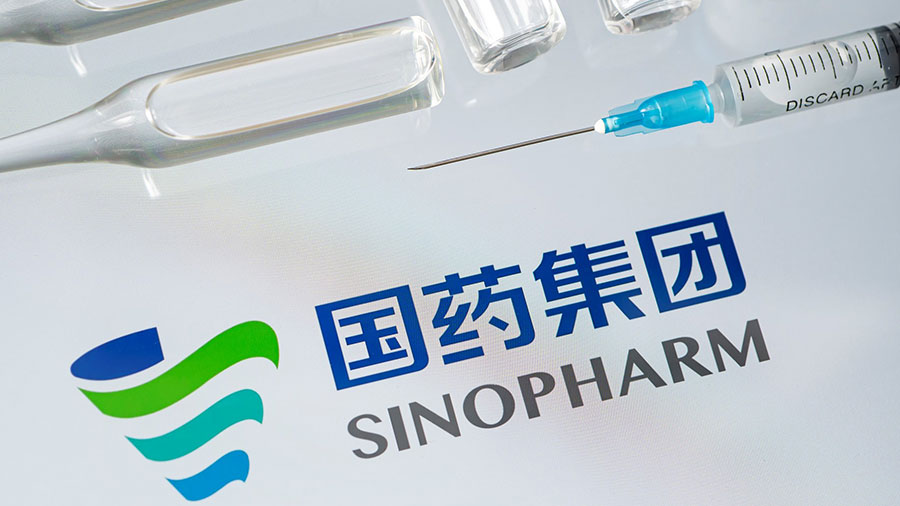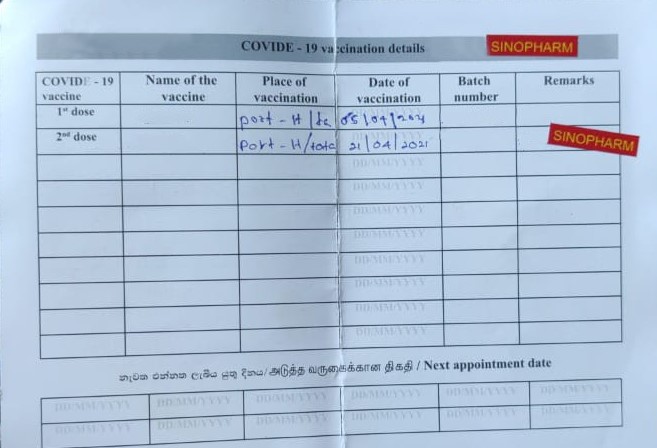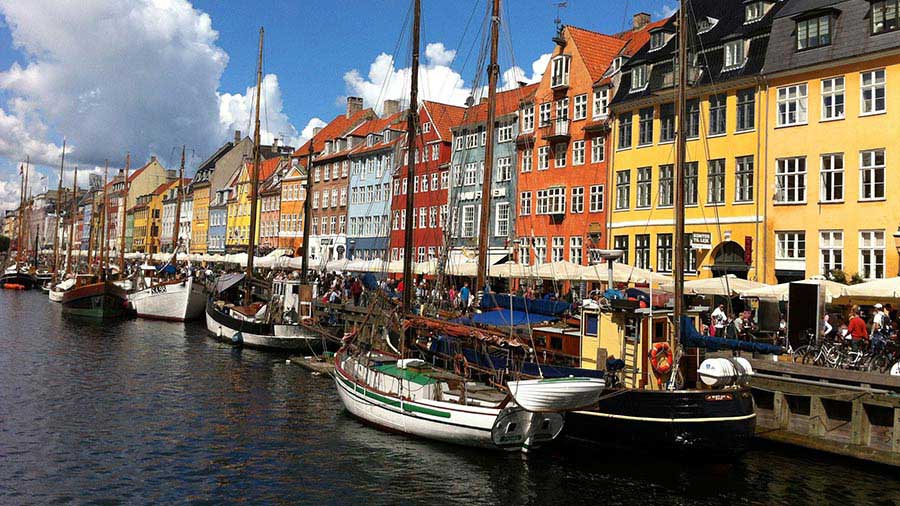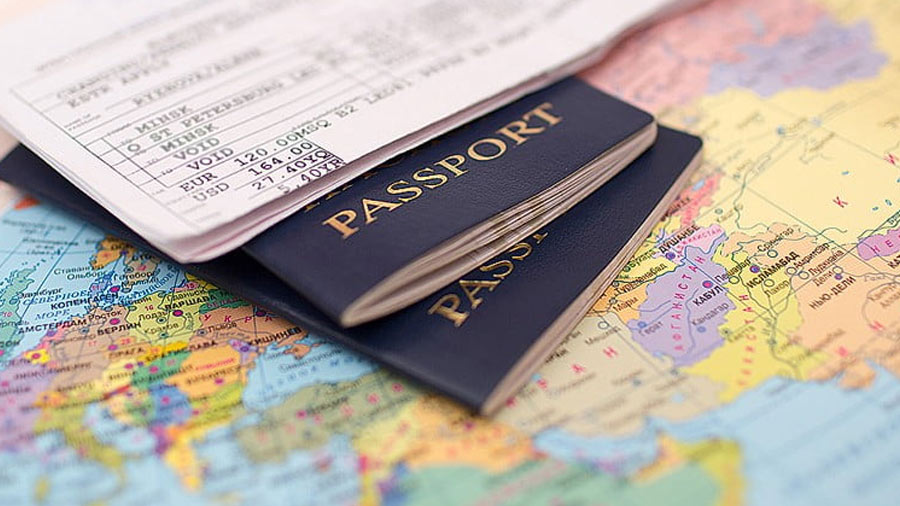Chinese Embassies Vaccinating Chinese Expatriates for Free

- Assistance given to Chinese nationals overseas is in sharp contrast to the official UK position for British expatriates – and other foreign nationals overseas
Op/Ed by Chris Devonshire-Ellis
The Chinese Embassy in Sri Lanka has contacted all local Chinese nationals throughout the country, advising them where to go to obtain complimentary vaccinations against the COVID-19 virus. Both required shots of the Sinopharm vaccine were provided to all Chinese nationals in the country by the end of April. It is understood that this policy has been extended to all overseas Chinese, depending upon the political relationship China has with the recipient country, in addition to other factors like local supply and logistics issues. When the two-shot vaccine dosage is completed, recipients are provided with a local vaccine passport. This is increasingly becoming a prerequisite for boarding flights home and reducing quarantine stipulations while enhancing the individual’s productiveness – they can work more efficiently and contribute to their employers with far more responsiveness than would otherwise be the case.  This is in stark contrast to other embassies who have largely failed to provide coverage for their own overseas nationals. One example is the British High Commission in Sri Lanka, the equivalent to an Embassy, which has been unable to provide any assurances or advice to British nationals in the country concerning vaccine provision, despite there being regular direct London-Colombo flights, a sizeable British expatriate population, and the UK being a major vaccine producer both home and abroad, while sending millions of vaccines overseas. The British High Commission website states “We provide services to British nationals living in and visiting Sri Lanka”. However, a call placed through to the British High Commission enquiring about the availability of vaccines for British nationals in Sri Lanka was met with the response: “It is not our policy to interfere with local vaccine distribution arrangements.” This is despite the British High Commission almost certainly be aware that vaccine distribution throughout the country has been notoriously uneven. This means the British Government has effectively ruled out any support for British nationals overseas, implying that a Communist nation is proving better able to look after its nationals than a democratic one. It is a stark wake-up to the realities of taking ‘communal’ responsibility to the ‘one man – one vote’ aspect of British democracy, especially when British expatriates had that vote forcibly taken away from them in 1997. We can compare the UK with China on a per capita basis as follows:
This is in stark contrast to other embassies who have largely failed to provide coverage for their own overseas nationals. One example is the British High Commission in Sri Lanka, the equivalent to an Embassy, which has been unable to provide any assurances or advice to British nationals in the country concerning vaccine provision, despite there being regular direct London-Colombo flights, a sizeable British expatriate population, and the UK being a major vaccine producer both home and abroad, while sending millions of vaccines overseas. The British High Commission website states “We provide services to British nationals living in and visiting Sri Lanka”. However, a call placed through to the British High Commission enquiring about the availability of vaccines for British nationals in Sri Lanka was met with the response: “It is not our policy to interfere with local vaccine distribution arrangements.” This is despite the British High Commission almost certainly be aware that vaccine distribution throughout the country has been notoriously uneven. This means the British Government has effectively ruled out any support for British nationals overseas, implying that a Communist nation is proving better able to look after its nationals than a democratic one. It is a stark wake-up to the realities of taking ‘communal’ responsibility to the ‘one man – one vote’ aspect of British democracy, especially when British expatriates had that vote forcibly taken away from them in 1997. We can compare the UK with China on a per capita basis as follows:
As can be seen, the average wealth to the UK of each British national is US$42,378, while the average wealth to China of each Chinese national is US$10,243 – a quarter of the value. Yet China is able to provide a national program to cover that value whereas the UK is not, despite each British national being worth a multiple of four times more. Nationals of other countries may provide their own statistics – however when it comes to China’s influence on the global stage, and measuring this, it becomes significant that Beijing’s role in looking after its own nationals and taking responsibility for them is in sharp contrast to that of the UK. There are political repercussions – in China, the ruling Communist Party maintains an approval rating of about 90 percent. In the UK, the current Conservative Government has an approval rating of 40 percent. With British expatriates apparently once again soon to be allowed to vote while overseas, a review of the services provided to them and an acknowledgment of their actual value to the British economy may well be overdue. With 5.5 million British expats presumably in similar positions, and each of them worth an estimated US$42,378 per annum, that amounts to a value of US$233 billion. British expats would not be unreasonable in asking what they get in return as their contribution for that productivity.
Update June 3, 2021:
Apparently, the British High Commission in Sri Lanka has been offering non-British nationals with relations with them access to COVID-19 vaccinations, yet continue to advise British nationals that they cannot assist and they must wait for local Government roll-outs to be put in place.
Related Reading
About Us China Briefing is written and produced by Dezan Shira & Associates. The practice assists foreign investors into China and has done so since 1992 through offices in Beijing, Tianjin, Dalian, Qingdao, Shanghai, Hangzhou, Ningbo, Suzhou, Guangzhou, Dongguan, Zhongshan, Shenzhen, and Hong Kong. Please contact the firm for assistance in China at china@dezshira.com. Dezan Shira & Associates has offices in Vietnam, Indonesia, Singapore, United States, Germany, Italy, India, and Russia, in addition to our trade research facilities along the Belt & Road Initiative. We also have partner firms assisting foreign investors in The Philippines, Malaysia, Thailand, Bangladesh.
- Previous Article This Week’s China Plus – Wednesday, June 2
- Next Article Перепись населения Китая в 2021 году: 5 выводов для иностранных инвесторов




























